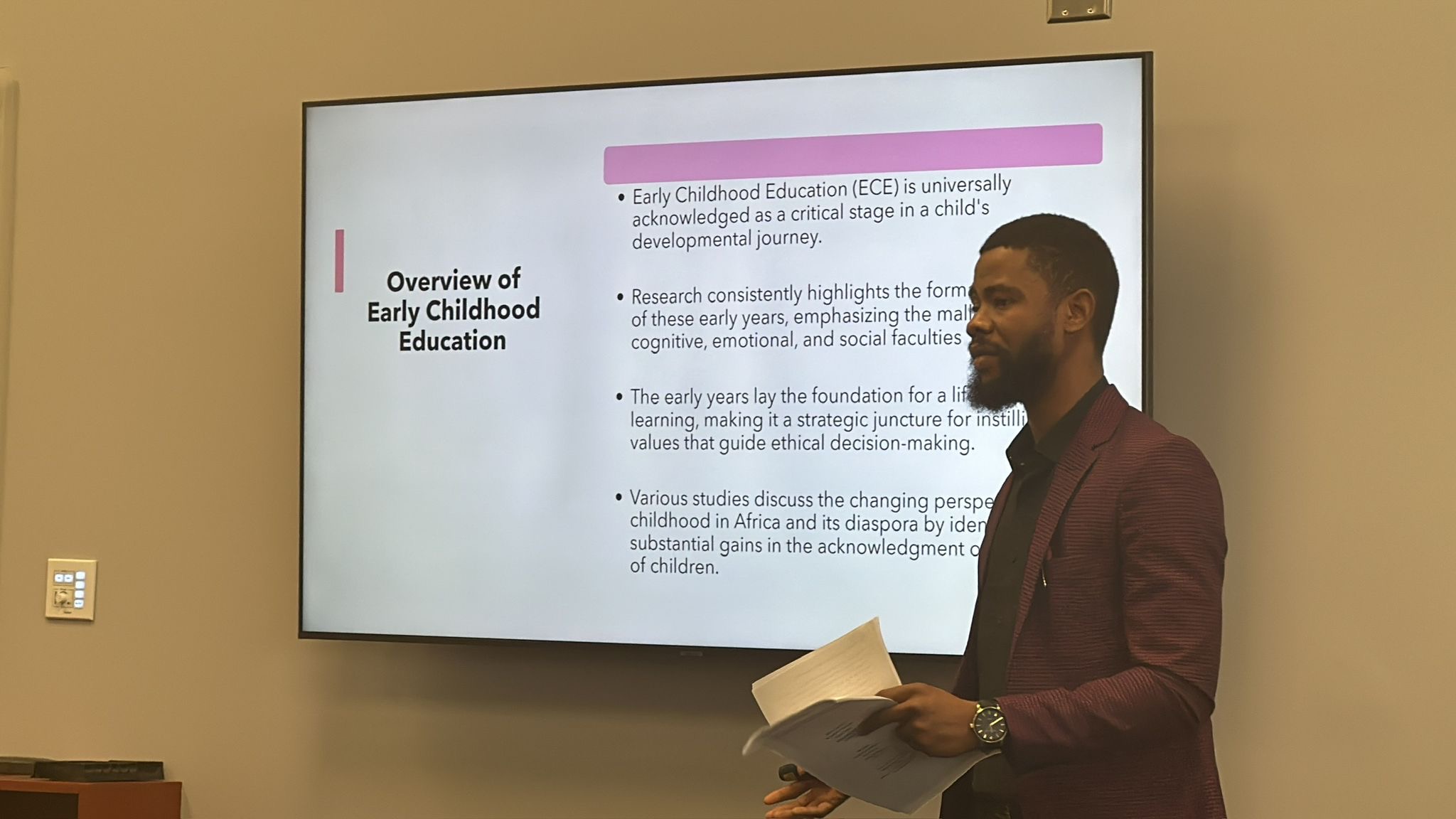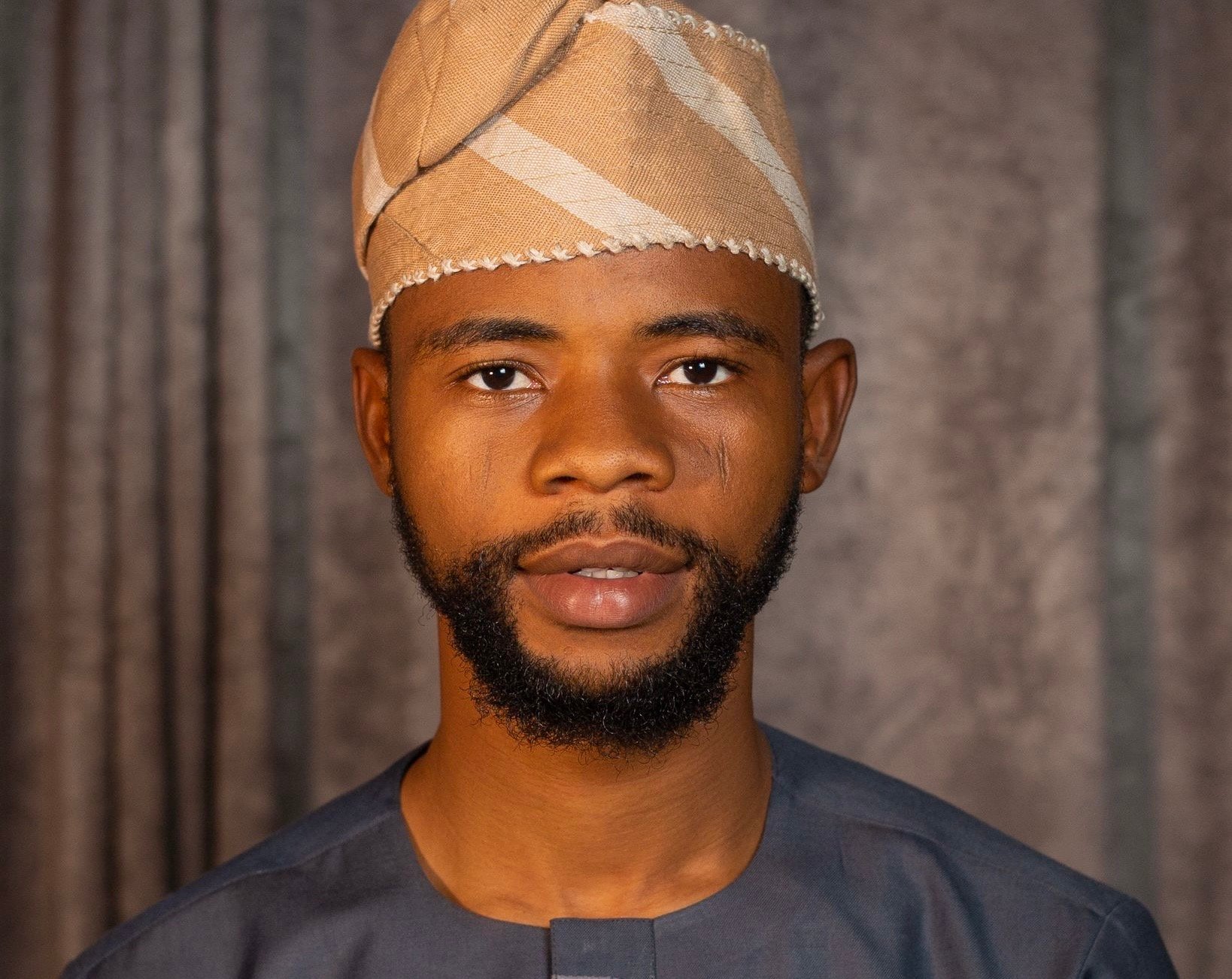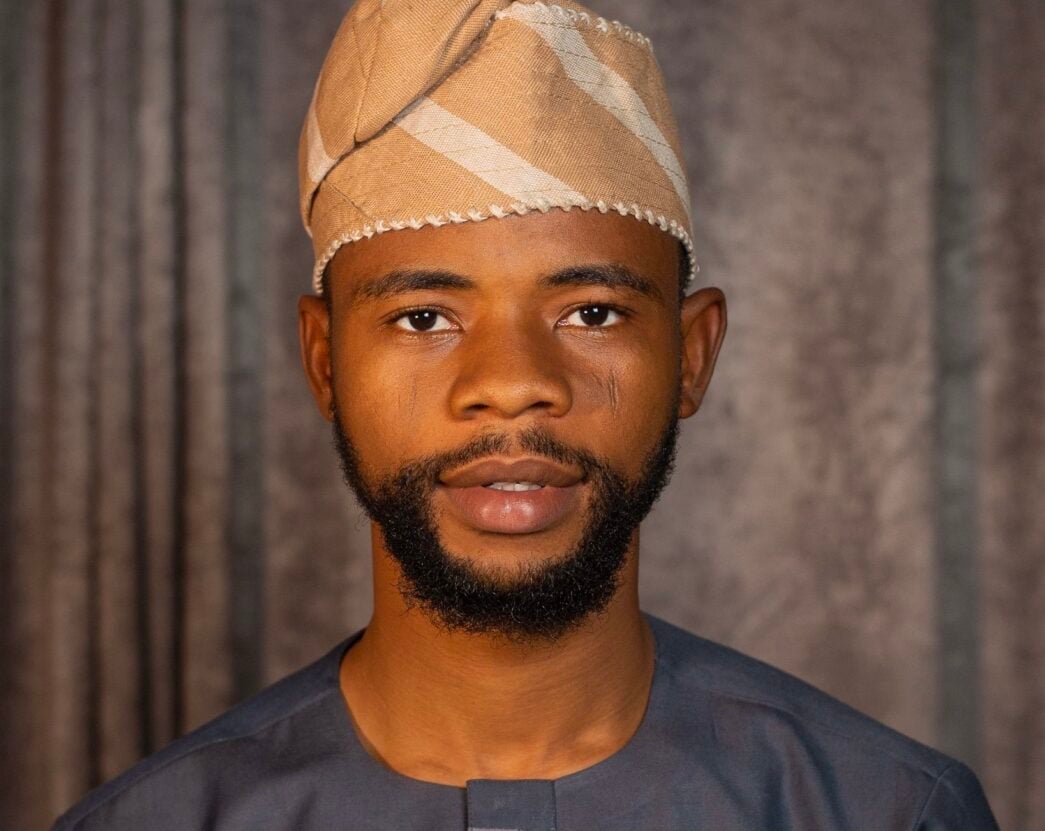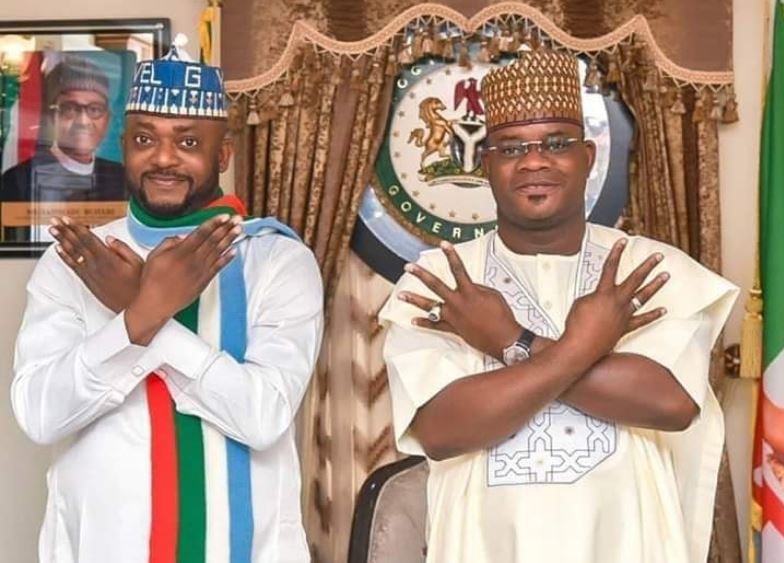Tijani Ahmed is a lecturer at the University of Ilorin (UNILORIN), Ilorin, Kwara state, and a doctor of philosophy (Ph.D.) candidate at Carolina University, United States of America (USA). He specialises in early childhood education and has conducted research on literacy, teacher competencies, and effective classroom practices in Nigeria.
In this interview with TheCable’s ABDULSALAM ABDULLAH, Ahmed spoke about the challenges and opportunities in Nigeria’s education system, the critical importance of early childhood education, and how mentorship, research, and policy advocacy can transform classrooms and empower teachers.
TheCable: What sparked your interest in education, and why did you choose primary education studies for your undergraduate degree and early childhood education for your postgraduate studies?
Ahmed: My interest in education started very early in life by observing how teachers shaped not only what children knew, but also who they became.
Advertisement
I was inspired by the idea that education is the most powerful tool for changing lives and communities.
Choosing primary education studies for my undergraduate degree was intentional because I wanted to focus on the foundation, the stage where learning habits and character are first formed.
Later, I specialised in early childhood education at the postgraduate level because I realised that the earliest years are the most critical for brain development, social growth, and lifelong learning.
Advertisement
By focusing on this stage, I felt I could make the greatest impact in ensuring children are not just taught, but truly nurtured.
For me, early childhood education is not just a career; it is a calling to lay the foundation for lifelong success.
TheCable: Can you share a defining experience that shaped your passion for education and how your approach to nurturing young children has evolved through your studies?
Ahmed: One defining experience that shaped my passion for education was during my early teaching practice, when I worked with children who struggled with basic numeracy.
Advertisement
I saw firsthand how the right support, something as simple as patient guidance and creative teaching methods, could completely transform a child’s confidence and eagerness to learn.
That moment convinced me that education is not just about content delivery, but about unlocking potential. As I advanced in my studies, especially through my postgraduate research in early childhood education, my approach has evolved to focus more on nurturing the whole child cognitively, emotionally, and socially.
I now see education as a partnership with children, families, and communities, where empathy and evidence-based practices go hand in hand to create lasting impact.
TheCable: As a staff member of the University of Ilorin, how have you managed teaching, research, and administrative duties, and what approaches have you found effective in engaging students and mentoring future educators?
Advertisement

Ahmed: My journey at the University of Ilorin has been a gradual progression, beginning as a graduate assistant, where I supported senior faculty with grading, research, and teaching practice supervision.
Those early years taught me discipline, attention to detail, and the importance of mentorship. As I advanced to assistant lecturer and later lecturer II, I took on greater responsibilities, designing course materials, leading lectures, supervising research projects, and contributing to programme development.
Advertisement
Balancing teaching, research, and administrative duties has required me to see them as complementary rather than separate; my research enriches my teaching, and my administrative roles allow me to contribute to academic leadership.
In engaging students, I emphasise interactive learning and critical thinking, while my mentoring focuses on shaping future educators who are not only competent but also empathetic and committed to lifelong learning.
Advertisement
Watching my students grow into confident professionals has been the most fulfilling part of this transition.
TheCable: What challenges have you faced in balancing these roles, and can you share a specific strategy or experience that has been most effective in engaging students or mentoring them successfully?
Advertisement
Ahmed: Balancing teaching, research, and administrative responsibilities has not always been easy, especially as I transitioned from graduate assistant to lecturer II.
Early in my career, the challenge was managing time, meeting grading deadlines, advancing my own research, and still finding space to mentor students meaningfully.
One strategy that has been most effective for me is adopting a student-centred approach. For example, instead of relying solely on lectures, I integrate real-life case studies, collaborative projects (group work), and research-led discussions that help students connect theory to practice.
My students can always tell that there will be a group project in every course I teach. In mentoring, I make it a point to share my own academic journey with them.
I moved from being an undergraduate student in the department to becoming a lecturer in the same department. This helps see that growth is a process of persistence and self-development.
This not only engages them in the classroom but also inspires them to approach their own careers with resilience and purpose.
TheCable: How do you mentor aspiring educators, support continuous professional development, and reflect on moments when your teaching made a clear impact, especially within the context of professional associations shaping teacher training in Nigeria?
Ahmed: Mentoring aspiring educators is one of the most rewarding aspects of my work. I focus on guiding them beyond academics by helping them build resilience, confidence, and ethical responsibility as future teachers.
Continuous professional development is central to this process; I encourage my students to attend workshops, join conferences, and engage actively in professional associations such as the Teachers’ Registration Council of Nigeria (TRCN) and the Early Childhood Association of Nigeria.
These platforms not only expose them to global best practices but also shape the standards of teacher training in Nigeria.
I have had moments that stand out, such as when a former mentee I had guided through research and teaching practice later shared that my mentorship gave them the confidence to lead their own classroom effectively.
For me, such stories are proof that teaching is not only about imparting knowledge, but also about shaping lives and sustaining the profession itself.
TheCable: Among your various studies in early childhood education, which work do you find most impactful? How do you choose relevant research topics, and what role has collaboration played in shaping your findings — particularly in areas like Nigeria’s education system and the link between social media use and academic performance?
Ahmed: My publications reflect the areas where I believe research can make the greatest difference in education.
One of my most impactful works was on the use of phonics to improve preschool children’s reading skills, published in the African Journal of Educational Research.
It showed measurable gains in literacy when early interventions are applied. Another significant publication examined pupils’ resilience, published in the Journal of Positive Psychology and Counselling, which emphasised the need for psychosocial support alongside academics.
Collaboration has been central to this process; working with colleagues has allowed me to broaden my perspective, enrich my methodology, and strengthen the credibility of findings.
A good example is our collaborative study on social media use and academic performance among undergraduates published in the International Journal of Academic and Applied Research, which showed how digital habits affect learning outcomes.
Research like this demonstrates that education today cannot be viewed in isolation; it is shaped by technology, society, and policy, and collaboration ensures we address these complexities with depth and relevance. These publications guide my approach to selecting topics.
I focus on challenges that are pressing in Nigeria’s education system, such as literacy, teacher competence, and digital influence on learning, but that also speak to global conversations on education.
Collaboration with colleagues has been key, as it not only strengthens the research process but also allows us to address complex issues from multiple perspectives.
For me, the true impact of these publications lies in how they inform policy, teacher training, and classroom practice.
TheCable: How have your research findings influenced classroom practice, teacher training, or educational policy in Nigeria?
Ahmed: My research has consistently aimed at bridging the gap between theory and classroom practice in Nigeria, particularly in early childhood and primary education.
For example, my studies on teachers’ pedagogical competencies and pupils’ academic achievement highlighted the importance of equipping teachers with practical instructional strategies, which have informed training workshops I facilitated for pre-service and in-service teachers at the University of Ilorin.
These sessions emphasised hands-on, learner-centred methods that directly enhanced classroom delivery.
Similarly, my work on the effect of phonics on preschool reading skills provided empirical evidence supporting phonics-based instruction, which I shared at professional conferences of the Early Childhood Association of Nigeria.
This research has been used by colleagues and teacher trainers to strengthen literacy instruction in early years’ classrooms, moving away from memorisation to evidence-based reading practices.
Beyond classroom teaching, my studies on sanitation and hygiene facilities in public primary schools have contributed to broader conversations on educational policy.
By presenting these findings at national conferences, I influenced discussions on how inadequate infrastructure directly affects pupils’ learning outcomes.
These insights have been integrated into teacher preparation programmes, sensitising educators to advocate for safe, supportive learning environments.
In summary, my research findings have shaped classroom practices by promoting effective instructional approaches, influenced teacher training by embedding evidence-based strategies into professional development, and informed policy conversations by linking educational outcomes with systemic issues such as infrastructure and resource availability.
These contributions reflect my broader goal of ensuring that research does not remain in journals but translates into meaningful improvements for Nigerian teachers and learners.
TheCable: How have your experiences presenting at international conferences, such as the Biennial International Conference on Africa and Its Diaspora (BICAID 2023) at the University of Georgia, shaped your academic outlook, and what can Nigerian scholars do to gain stronger visibility on global academic platforms?

Ahmed: My affiliations with the Teachers Registration Council of Nigeria (TRCN) and the National Association for the Education of Young Children (NAEYC) shaped both my teaching and research by anchoring them in professional standards and global best practices.
TRCN has kept me attuned to national benchmarks for teacher professionalism, which I integrate into my courses to ensure teacher trainees are prepared for effective classroom practice.
On the other hand, NAEYC has exposed me to international discourses on child-centred pedagogy and equitable learning environments, influencing my research focus on literacy strategies, phonics instruction, and teacher competencies in Nigeria.
Within the Early Childhood Education Association of Nigeria (ECAN), I have actively contributed to advancing quality education through conference presentations and collaborative workshops.
For instance, at the 2019 and 2020 national conferences, I facilitated discussions on quality control in early childhood classrooms and the alignment of pre-primary education with the Sustainable Development Goals.
These initiatives not only disseminated my findings on teacher training and child development but also created platforms for Nigerian educators to exchange practical strategies for improving classroom practice.
Through these roles, I have sought to bridge research and practice, ensuring that scholarly insights are translated into tangible improvements in early childhood education across Nigeria.
TheCable: What innovative strategies do you propose for enhancing the quality of pre-primary education in Nigeria, and how can policymakers ensure curriculum design aligns effectively with real classroom experiences?
Ahmed: Enhancing the quality of pre-primary education in Nigeria requires strategies that prioritise active, child-centred learning and link curriculum to the realities of teachers and learners.
One innovative approach is expanding the use of play-based and dialogic book reading strategies, which my recent research has shown to significantly improve literacy and engagement in early years.
Another is embedding STEM hands-on activities at the pre-primary level, which not only develops problem-solving skills but also helps pupils build confidence and curiosity from the start.
Importantly, sustained professional development for teachers, delivered through mentoring and continuous training rather than one-off workshops, ensures these innovations are consistently implemented.
For policymakers, aligning curriculum design with classroom realities means co-creating curricula with teachers who are on the frontlines of instruction, ensuring that the content is developmentally appropriate and feasible within Nigerian classrooms.
Regular feedback loops between schools, teacher training institutions, and policymakers can help bridge the gap between theory and practice, allowing curriculum revisions to reflect actual classroom challenges such as large class sizes, limited resources, and linguistic diversity.
By pairing evidence-based innovations with participatory curriculum design, Nigeria can create an early childhood system that is both globally informed and locally relevant.
TheCable: How have recognitions like the Presidential Scholarship Award from Carolina University and other excellence awards shaped your personal growth, professional commitment, and approach to balancing humility with ambition in your academic journey?
Ahmed: Recognitions such as the Presidential Scholarship Award from Carolina University and the University of Ilorin staff development awards I received for both my master’s and Ph.D. programmes have deeply shaped my academic journey.
On a personal level, they reinforced my belief that hard work and perseverance are noticed, which has strengthened my resilience in the face of challenges.
Professionally, these recognitions increased my sense of responsibility to give back, both by mentoring students and by conducting research that directly improves teaching and learning in Nigeria.
At the same time, I see these awards not just as personal achievements but as opportunities to represent my institutions and my country on broader academic platforms.
This perspective has helped me balance humility with ambition, recognising that while the awards affirm my progress, they are also a call to continue learning, collaborating, and contributing.
Rather than resting on recognition, I use them as motivation to set higher standards for myself while remaining grounded in service to education and community development.
TheCable: As you look ahead to completing your Ph.D., how do you plan to shape the future of early childhood education in Nigeria through policy advocacy, mentorship, authorship, and by guiding the next generation of educators?
As I approach the completion of my Ph.D. in Educational Administration at Carolina University, USA, with a dissertation examining the predictive relationship between leadership styles and teacher job satisfaction in early childhood education, I see my work as a foundation for shaping the future of Nigerian education in several key ways.
Through policy advocacy, I plan to highlight how leadership practices directly influence teacher morale, retention, and classroom quality, urging policymakers to prioritise leadership development in early childhood settings alongside curriculum reform.
In terms of mentorship, my experiences as a lecturer and teacher trainer have shown me how crucial it is to guide upcoming educators not only in pedagogy but also in professional resilience and leadership capacity.
I will continue to mentor both pre-service and in-service teachers so they can become reflective practitioners and advocates for children.
As an author and researcher, I intend to publish comparative studies that connect findings from contexts like North Carolina with Nigerian realities, offering evidence-based strategies that are both globally informed and locally relevant.
Most importantly, by guiding the next generation of educators, I aim to model how leadership, scholarship, and service can work together to strengthen early childhood education in Nigeria.
My vision is to influence a system where teachers are supported, motivated, and empowered, because only then can classrooms truly nurture the potential of every child.
TheCable: If you hadn’t chosen a path in academia, what alternative career might you have pursued, and what common misconception about early childhood education would you most want to challenge?
Ahmed: If I had not chosen a path in academia, I would likely have pursued a career in educational policy consulting or child development advocacy, because I have always been drawn to finding practical solutions to systemic challenges in education.
Both fields still align with my passion for shaping environments where children and teachers thrive, just from a different angle of influence.
The common misconception I most want to challenge about early childhood education is that it is merely a form of childcare or a stepping stone before “real” education begins.
In truth, early childhood is the most formative stage of human development, where children build the cognitive, social, and emotional foundations for lifelong learning.
Research consistently shows that quality early education not only improves academic outcomes but also fosters resilience, empathy, and problem-solving skills.
My work emphasises that investing in this stage is not optional; it is central to national development, and teachers at this level should be recognised as highly skilled professionals shaping the future.
TheCable: What steps do you think Nigeria should take to elevate the status of early childhood education and ensure teachers at this level are recognised and supported as skilled professionals?
To elevate the status of early childhood education (ECE) in Nigeria, the first step is to institutionalise it as a professionalised sector within the education system, rather than treating it as an informal extension of childcare.
This requires strengthening the Teachers Registration Council of Nigeria’s (TRCN) professional benchmarks, so that early childhood educators are certified, fairly remunerated, and given opportunities for career progression on par with teachers at other levels.
Second, Nigeria must invest in sustained professional development, moving beyond one-time workshops to continuous training, mentoring, and coaching systems that empower teachers to apply child-centred, evidence-based methods in their classrooms.
Third, there must be policy alignment with classroom realities, which means smaller class sizes, adequate teaching materials, and curricula co-designed with teachers, so they are not only implementers but also contributors to educational policy.
Finally, elevating ECE requires public recognition campaigns that shift societal perceptions, highlighting the scientific evidence that the early years are the foundation of lifelong success.
When early childhood educators are valued as skilled professionals and supported structurally, Nigeria will not only strengthen learning outcomes but also demonstrate its commitment to building a knowledge-driven future.
TheCable: What message or advice would you like to share with young and aspiring early childhood educators who are just beginning their journey?
Ahmed: My message to young and aspiring early childhood educators is this: see yourself as a nation builder, not just a classroom teacher.
The work you do in nurturing young children is foundational to everything that comes after, academically, socially, and morally.
Stay committed to continuous learning because the field is always evolving, and your growth as a professional directly impacts the children you serve.
At the same time, approach your work with both humility and confidence: humility to learn from your peers, mentors, and even from the children themselves, but confidence to know that your role is vital and worthy of recognition.
Finally, never lose the joy that drew you to this field; when children see your passion, they mirror it in their curiosity and love for learning.
Remember, every small act of care, creativity, and patience today is an investment in the future of our communities and our nation.
Early childhood educators are not just teaching children; we are laying the foundation for the future of society, one child at a time.











